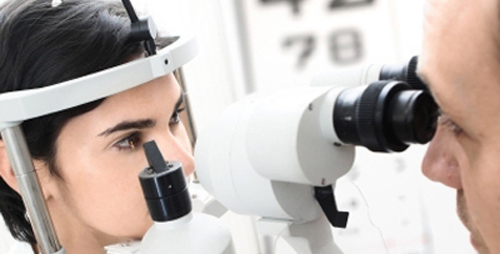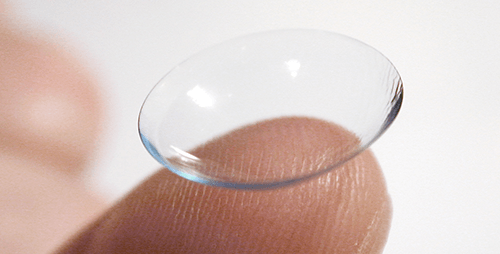Reasons Why We Might Prescribe Spectacles
Short-sightedness (myopia)
Short sight occurs when light is focused in front of the retina causing distance vision to become blurred. Near vision is often clear. Short sight normally develops in childhood or adolescence and is often first noticed at school. Glasses may need to be worn all the time or just for driving, watching TV or sport.
Long-sightedness (hypermetropia)
Long sight occurs when light is focused behind the retina rather than on it, and the eye has to make a compensating effort to re-focus. This can cause discomfort, headaches or problems with near vision. Glasses may need to be worn all the time or just for close work, such as reading, writing or computer use. In older people, as re-focusing becomes more difficult, distance vision may also become blurred.
Astigmatism
Astigmatism occurs when the front part of the eye, usually the cornea, is not a regular symmetrical spherical shape. Instead, its shape is similar to that of a rugby ball, two different curves at 90 degrees to one another. Because of this irregular shape, the eye can’t focus light passing through it sharply on to the back of the eye or retina, so vision can be blurred at all distances. Milder astigmatism may not need treatment unless the person is doing a job that puts intensive demands on the eyes, for example, computer work, reading, or if they have headaches, especially when trying to focus. Spectacles will be prescribed to ease any symptoms of astigmatism.
Presbyopia
Presbyopia is the loss of focusing ability that occurs naturally with age. In younger people, the lens is very flexible and the eye has a wide range of focus from far distance to close up. As you get older, the lens slowly loses its flexibility leading to a gradual decline in ability to focus on near objects. Presbyopia is not a disease but a normal and expected change which sooner or later affects everyone, whether or not you already wear glasses or contact lenses. Around the age of 40-45, you will begin to notice that you are holding the newspaper further away or need more light to read small print. There is no advantage in delaying using reading glasses, or changing to bifocals or varifocals. They will not make the eyes lazy.



